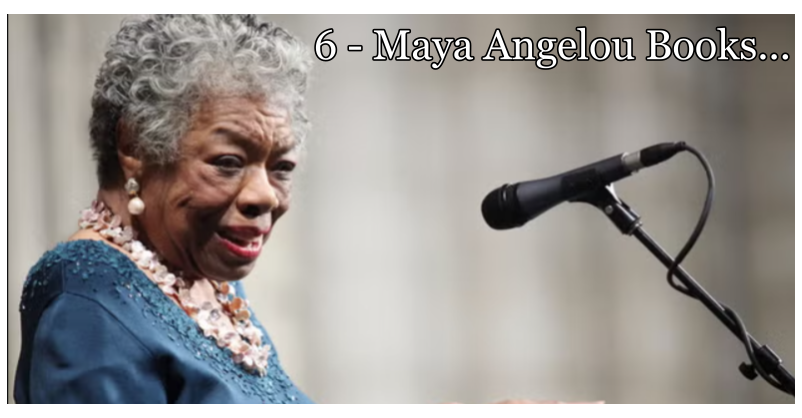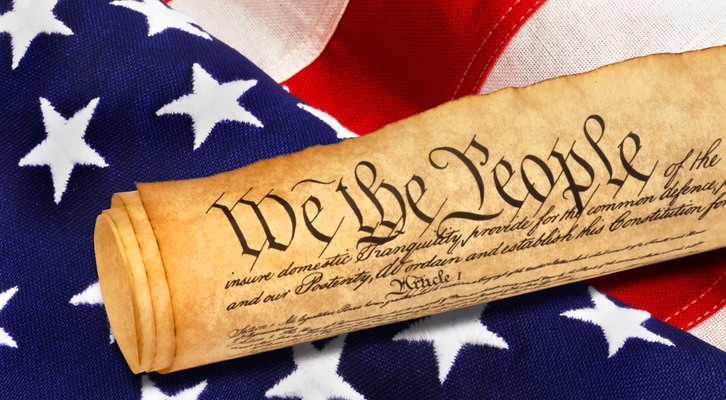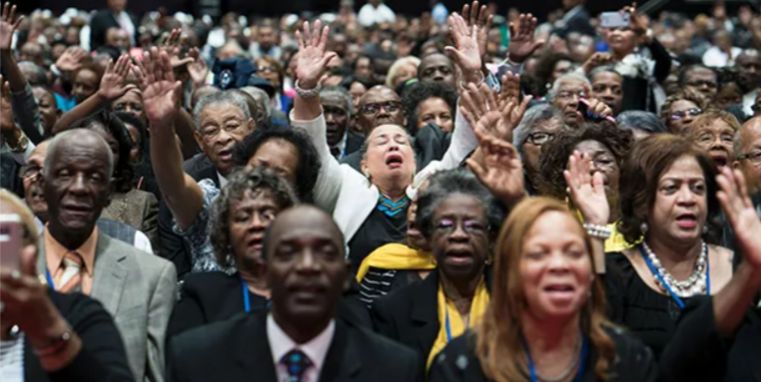(ThyBlackMan.com) Maya Angelou, an icon of American literature, has left an indelible mark on history, particularly Black history, with her powerful words and insightful storytelling. Her works transcend time, resonating deeply with contemporary readers even in 2025. Angelou’s books are not merely narratives; they are testimonies of resilience, self-discovery, and the relentless pursuit of freedom. For those looking to immerse themselves in her literary genius, here are six Maya Angelou books that everyone should read, each offering a profound connection to Black history and invaluable lessons for today’s world.

1. I Know Why the Caged Bird Sings (1969)
Maya Angelou’s first and most famous autobiography, I Know Why the Caged Bird Sings, is a seminal work that has shaped discussions on race, identity, and trauma in American literature. Chronicling her early years, the book vividly portrays her experiences growing up in the segregated South, enduring racism, sexual violence, and personal struggles that ultimately shape her resilience and self-worth. The title itself, inspired by Paul Laurence Dunbar’s poem Sympathy, signifies the entrapment of Black people in systemic oppression.
The book is an essential piece of Black history because it highlights the harsh realities of racism and sexual violence while celebrating the triumph of the human spirit. Angelou’s unflinching honesty in recounting her traumatic experiences was groundbreaking at the time, providing a voice for many who had been silenced. It continues to be a foundational text in 2025, especially in discussions on intersectionality, trauma, and healing.
For contemporary readers, I Know Why the Caged Bird Sings serves as both a historical document and a relevant exploration of race and gender dynamics. Its themes remain pressing, making it a must-read for those seeking to understand systemic injustice and personal resilience.
2. Gather Together in My Name (1974)
Following I Know Why the Caged Bird Sings, Angelou continues her autobiographical series with Gather Together in My Name. This book picks up where her first memoir left off, covering her late teenage years and early adulthood as she navigates the world in search of stability, independence, and self-identity. The narrative delves into her experiences as a young Black woman trying to find her place in a society that constantly seeks to marginalize her.
This book is particularly significant in Black history as it showcases the struggles of young Black women in mid-20th-century America. Angelou’s portrayal of her own mistakes, hardships, and evolving sense of self is a refreshing and honest look at personal growth amid societal limitations. The book also touches on economic struggles, motherhood, and the challenges of maintaining dignity in a world that often denies it to Black individuals.
Reading this book in 2025 is a valuable exercise in understanding the nonlinear journey of self-discovery. Angelou’s candor about her missteps makes this work relatable to younger generations navigating their own paths in an era where racial and gender inequities persist.
3. Singin’ and Swingin’ and Gettin’ Merry Like Christmas (1976)
The third installment in Angelou’s autobiographical series, Singin’ and Swingin’ and Gettin’ Merry Like Christmas, details her experiences as a performer in the 1950s. As Angelou finds success as a singer and dancer, she travels extensively, even joining the European tour of Porgy and Bess. This book is a vibrant celebration of Black artistry and resilience, showcasing how creative expression can serve as both an escape and a tool for cultural empowerment.
Within the context of Black history, this book illustrates the impact of Black artists on the global stage. Angelou’s experiences highlight the barriers Black performers faced during this era, as well as the recognition and respect they found abroad. Her narrative also explores interracial relationships, cultural identity, and the power of art in shaping social consciousness.
Reading Singin’ and Swingin’ and Gettin’ Merry Like Christmas in 2025 offers an important reminder of the struggles and triumphs of Black artists throughout history. As discussions about representation in the arts continue, Angelou’s reflections provide historical insight and inspire today’s artists to pursue their craft unapologetically.
4. The Heart of a Woman (1981)
The Heart of a Woman takes Angelou’s story into the 1960s, a pivotal era in the civil rights movement. In this book, she becomes more politically involved, working alongside key figures such as Malcolm X and becoming a part of the African liberation movements. Her narrative expands beyond personal struggles, placing her in the larger context of Black activism and global struggles for freedom.
This book is a crucial piece of Black history because it provides a firsthand account of the civil rights movement from a woman’s perspective. Angelou’s experiences illuminate the intersections of race, gender, and political activism, showing how Black women played indispensable roles in these movements.
For modern readers, The Heart of a Woman is especially relevant in 2025, as the fight for racial justice continues. This book encourages activism, reflection, and an understanding of historical struggles that still shape contemporary society.
5. All God’s Children Need Traveling Shoes (1986)
In All God’s Children Need Traveling Shoes, Angelou explores her time living in Ghana, where she reconnects with her African heritage and deepens her understanding of identity and belonging. This book is a powerful reflection on the African diaspora, the search for home, and the complexities of being both American and African.
The significance of this book in Black history lies in its exploration of Pan-Africanism. Angelou’s interactions with prominent African intellectuals and activists illustrate the strong ties between the civil rights movement in the U.S. and African liberation movements. Her experiences reflect the complexities of returning to a homeland that both embraces and alienates those from the diaspora.
Reading this book in 2025 is particularly meaningful in an era of increased interest in African ancestry and identity. As more Black Americans explore their roots, Angelou’s journey serves as a guide for those seeking to understand their historical and cultural connections to Africa.
6. A Song Flung Up to Heaven (2002)
The final book in Angelou’s autobiographical series, A Song Flung Up to Heaven, brings her journey full circle, detailing her return to the U.S. in the wake of Malcolm X and Martin Luther King Jr.’s assassinations. The book captures her pain, resilience, and eventual decision to write I Know Why the Caged Bird Sings.
This book is essential to Black history as it provides a deeply personal perspective on the loss of Black leaders and the psychological toll of the civil rights movement. It also highlights the importance of storytelling as a means of preservation and resistance.
For readers in 2025, A Song Flung Up to Heaven serves as a reminder that history is not just about dates and events; it is about lived experiences and emotions. Angelou’s reflections continue to inspire resilience and commitment to justice in today’s world.
Staff Writer; Jamar Jackson

















Leave a Reply